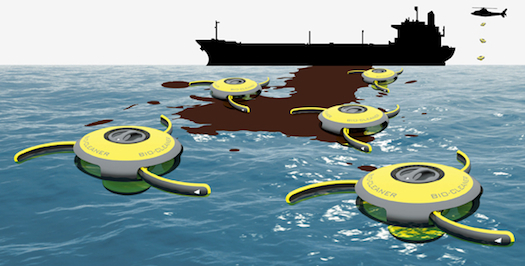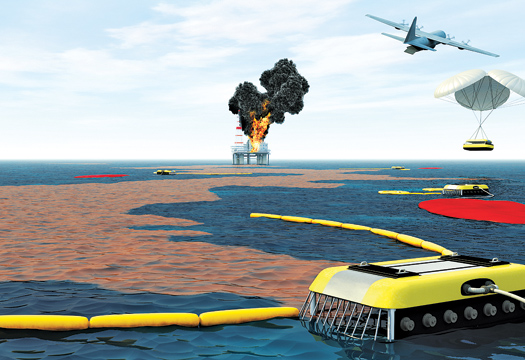

Tiny, self-propelled microsubmarines could pick up and tote droplets of oil away from contaminated waters, according to a new study. The cone-shaped objects are extremely water-repellent, improving their oil-grabbing capabilities, and could serve as simple helpers in oil spills.
Joseph Wang at the University of California−San Diego and colleagues in Spain note that small tubular micro-machines have already proven useful in biology, with their ability to work as receptors or drug delivery systems. But they’re the first team to test them as environmental helpers.
The cone-machines are made from self-assembled monolayers and have special chemical properties that encourage them to pick up oil. They move quickly through the water and require very little fuel, so they could work efficiently. In lab tests, Wang and colleagues proved the machines could move through water and pick up both olive oil and motor oil, transporting collections of droplets around.
Their water-repellency could also pave the way for new drug-delivering molecules or for transferring liquids in otherwise immiscible environments, the authors say.
The devices are about 10 times thinner than a human hair, so presumably you would need epic fleets of them to make a difference in massive oil spills like the Deepwater Horizon disaster. Large-scale cleanup operations would also require different types of motors, perhaps driven by magnetic fields or electrical current, the authors note. Still, the machines could be more environmentally friendly than new types of soaps or other absorbent material.
The study appears in the journal ACS Nano.







